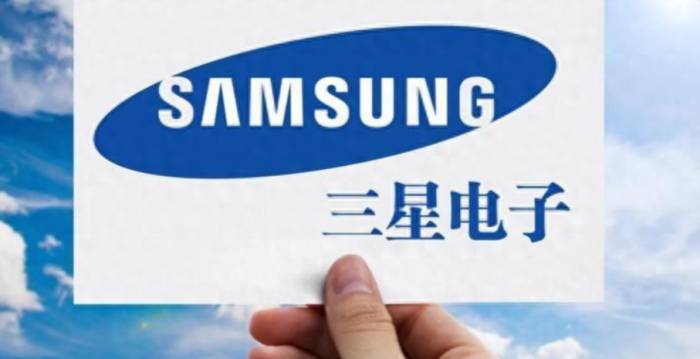Samsung's Profits Plunge 75% Again
Will Samsung become the second Nokia? If so, what kind of twists will Korea's national fortune undergo? Why has the Sino-American rivalry led to South Korea becoming a country that announces a ban on short selling?
Just a few years ago, this South Korean giant had just defeated Qualcomm and Intel to successfully claim the title of the world's largest semiconductor company, with the whole of South Korea in a festive mood at the time.
But fate is such a teaser, the happier it was then, the sadder it is now. As the gears of national destiny begin to turn, no one will be able to stop the development of events.
Do Koreans know what Samsung means to their country?
Without Samsung, South Korea's status as a developed country may no longer exist. Now, the voice of "please save Samsung" is spreading among the South Korean people and on the internet.
In the first half of this year, affected by the Yoon Suk-yeol administration's semiconductor policy against China following the United States and the weak global economy, Samsung's performance plummeted, with net profit falling 95% compared to 2022, setting a new low in nearly 14 years.
Once the pride of the whole of South Korea, Samsung Semiconductor, the former world number one, suffered a loss of about 13 trillion won in the first three quarters, accounting for one-third of Samsung's global total profit in 2022.
In the brilliant year of 2017, Samsung's memory semiconductors accounted for 45% of the global market, breaking Intel's 25-year monopoly, and its profits for that year exceeded those of Apple and Saudi Aramco, becoming the world's most profitable company.
However, in just a few short years, this South Korean giant has fallen into the quagmire of losses. How did it fall into such a predicament?

Let's look at a set of data. As of June 2023, Samsung's inventory of semiconductors has exceeded 35 trillion won, and this figure continues to grow.It is unknown whether the Korean pioneers who desperately tried to develop chips would be pounding their coffin lids at this moment. They took 40 years to develop Korea's semiconductor industry. And during the 2008 Asian financial crisis, when the industry was collapsing, they bet their entire fortune on expanding production, deliberately increasing industry losses, leading to the Japanese Elpida being acquired by Micron after struggling for many years. Since then, the Koreans have defeated the Japanese and become the new overlord of the memory semiconductor industry.
Samsung is the largest conglomerate in Korea, with its revenue accounting for 30% of Korea's GDP, influencing the Korean economy. Among all of Samsung's businesses, semiconductors were once the most profitable.
However, the biggest sorrow for Korea is that its destiny is not in its own hands.
Samsung's rise largely benefited from the United States' efforts to suppress Japan's semiconductor industry to prevent Japan's rise and GDP from surpassing its own, so it chose to support Samsung.
However, as the United States rotates the gears of Korea's national fortune in its hands, when it needs to deal with new competitors like China, Samsung and Korea naturally become the objects of sacrifice.
The most important reason for Korea's semiconductor predicament is the United States' chip restrictions on China. First, it announced that Samsung's semiconductors cannot fill the gap left by Micron's departure from China.
Second, it is precisely because of the United States' restrictions that Chinese companies like Yangtze Memory and ChangXin Memory have achieved technological breakthroughs in the field of memory chips. The scales of fate, manipulated by the United States, have tipped towards China in an unexpected way.
So where does Samsung's inventory come from?
The reason is very simple, because the Chinese are not buying anymore, and this inventory should have been in the electronic products used by the Chinese.
In Korea, many people have expressed strong dissatisfaction with the Yoon Suk-yeol administration's policy of following the United States. They took to the streets to protest, and the most common thing they said was, "Is there still hope for our Korea?"They are aware that the industrial achievements established by their ancestors over decades could be jeopardized in an instant due to a single misstep. However, it must be said that South Korea is not wronged; your outcome is a result of your own choices, and no one else can be blamed.
Now, Samsung's market value has plummeted, and the South Korean stock market is on the brink of collapse. The South Korean side has announced a complete ban on short selling in the stock market. This is the fourth comprehensive prohibition since the 2008 financial crisis, the 2011 European debt crisis, and the 2020 mask crisis. But will the gears of fate stop turning? They will not.
The fate of an individual or a country, if willingly controlled by others, is obvious. South Korea is the best example!
Post Comment